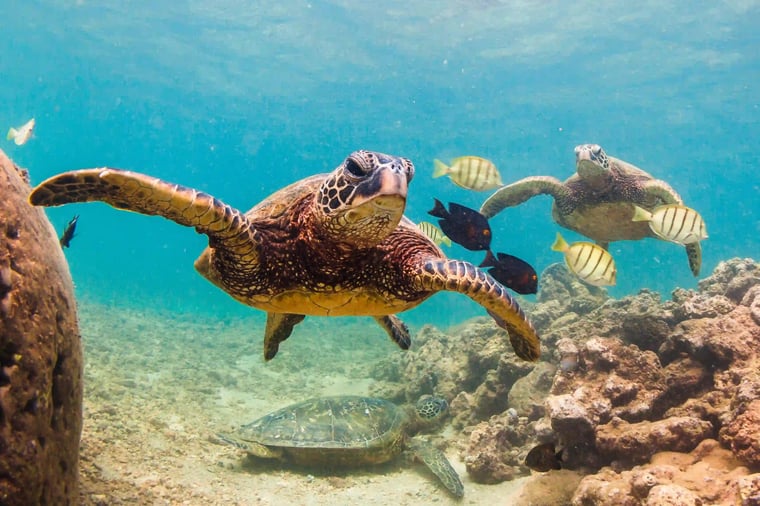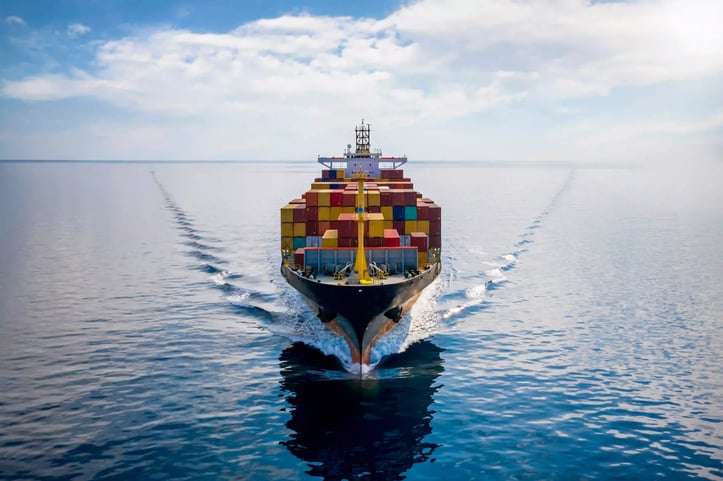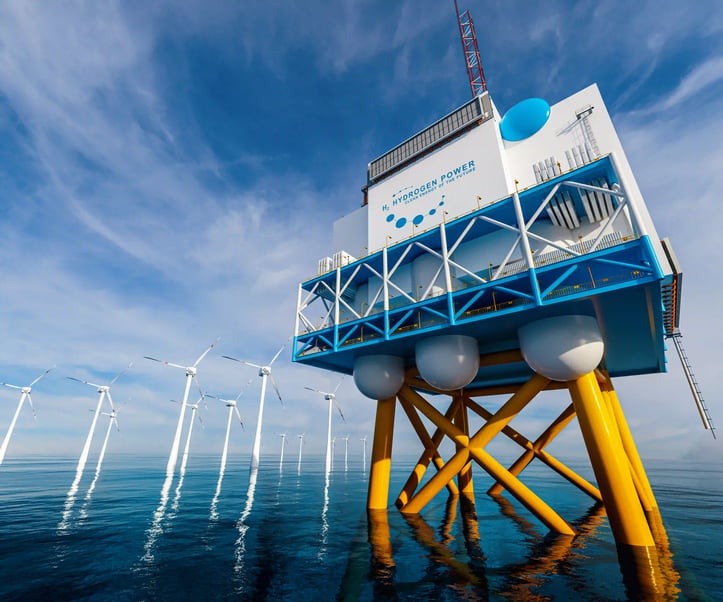
Blue economy part 1 - what is the blue economy?
September 2023
by Chris Taylor, Senior Consultant at 42T
For a large part of my career - while working in the offshore oil and gas industry - the ocean is something that has fascinated me. But more recently, I’ve become increasingly interested in how technology can, not only help us utilise ocean resources, but how it can help us limit and reverse some of the damage we have caused to this precious ecosystem.
Background
The increasing global population has amplified the demand for ocean resources and services. In recent years, our use of the oceans has accelerated to unprecedented levels, and with this, we have seen negative impacts on many fragile ecologies. Marine ecosystems are at the heart of many of the world’s global challenges: climate regulation, food, medicines, new sources of clean energy, and job creation, amongst others.
So, let’s imagine a world where economic growth, environmental sustainability, and global cooperation converge to create a thriving, sustainable future. This is the vision of the blue economy, a concept that emphasises the sustainable use and management of ocean resources for the improvement of our planet.
The blue economy represents a combined strategy for governments and businesses, aimed at leveraging the potential of oceans, seas, and coastal areas to foster global cooperation, environmental sustainability, and economic growth. The growing need for sustainable solutions heightens the urgency for a sustainable blue economy to help combat climate change.
Key takeaways
-
The blue economy is a strategy for utilising oceanic resources and services to achieve global cooperation, environmental sustainability, and economic growth.
-
Inclusive approaches and investments in infrastructure are essential for a successful transition to a sustainable blue economy with the potential to drive economic growth while conserving marine ecosystems.

Understanding the blue economy
Increased utilisation of the ocean has resulted in unprecedented effects, such as an acceleration of ocean warming, acidification, dead zones, and species decline (IPCC, 2019; IPBES, 2019). To combat these effects, our scientific understanding of the ocean and its ecosystems needs to improve.
The blue economy is a term used to describe the move towards more sustainable economic activities associated with the oceans and seas. The World Bank defines the blue economy as the “sustainable use of ocean resources to benefit economies, livelihoods and ocean ecosystem health.”
The blue economy strategy encompasses traditional ocean activities, such as maritime shipping, fishing, and aquaculture, as well as emerging industries like renewable energy, undersea cabling, seabed extractive industries, and marine biotechnology. Its purpose is to promote a sector-wide sustainable change in the way we utilise our oceans and to impact positive change to what we’ve done and how we plan to use our oceans in future.

Economic growth and ocean resources
Undoubtedly, there are economic opportunities to be had in the pursuit of this goal. Innovators around the world are developing products and businesses, and in 2019, the American blue economy grew faster than the nation’s economy in its entirety, supporting 2.4 million jobs and contributing $397 billion to their GDP. Traditional Ocean activities, such as fisheries and aquaculture, maritime transport, and coastal tourism, have long been essential drivers of economic growth in coastal communities.
The growth of ocean economies worldwide is becoming increasingly dependent on emerging industries within the blue economy like:
- renewable energy
- aquaculture
- seabed extractive activities
- marine biotechnology
Sustainable utilisation of ocean resources, including marine resources, is essential for maintaining ocean ecosystem health and meeting the ever-growing demand for maritime trade, which is expected to triple by 2030.
Summary
The blue economy presents a unique opportunity to address the challenges of economic growth, environmental sustainability, and global cooperation. Through investments in infrastructure, technology, research, education, and job creation, countries can support the transition to a sustainable blue economy and unlock its potential benefits. With the right governance structures, regulations, and collaboration among stakeholders, the blue economy can pave the way for a more sustainable and prosperous future for our planet and its inhabitants.
What’s next?
Want to know more? In part 2, we discuss what sectors hold the biggest opportunities within the blue economy and what impact new technologies will play in the blue economy. We will also identify the key trends and discuss how businesses can support the transition to a sustainable blue economy. Don’t forget to check out the FAQ section below.

Frequently Asked Questions (FAQs)
What is the blue economy?
The blue economy emphasises the importance of sustainable management of ocean resources with the aim of encouraging economic growth, environmental sustainability, and global collaboration.
What are the benefits of the blue economy?
The blue economy offers sustainable economic opportunities and simultaneously protects and develops resources such as traditional ways of life, carbon sequestration and coastal resilience, helping vulnerable states mitigate poverty and climate change.
Which countries use blue economy?
As of 2023, Australia, India, Denmark, Norway, Trinidad & Tobago, Antigua & Barbuda, Kenya and Vietnam have all implemented strategies and policies in support of the blue economy.
What is the difference between green and blue economy?
The green economy focuses on energy, transport, and sometimes agriculture and forestry, while the blue economy is centred around fisheries sectors and marine and coastal resources. Both economies seek to address climate mitigation and adaptation.
If you would like to find out more, please contact 42T’s Duncan Lindsay:

duncan.lindsay@42t.com | +44 (0)1480 302700 | Duncan's LinkedIn
Duncan is the Director of Industrial Products
Share this article:
Related Articles

Consumer, Personal Care
From concept to consumer: innovators shaping the personal care landscape

Consumer, Sustainability
The refillable revolution - the sustainable future of grocery shopping

Industrial, Smart Systems
Enhancing technology and boosting efficiency through sensor fusion

What will you ask us today?
We believe in asking the right questions to drive innovation; when we know the right questions, we generate the ideas to answer them.

